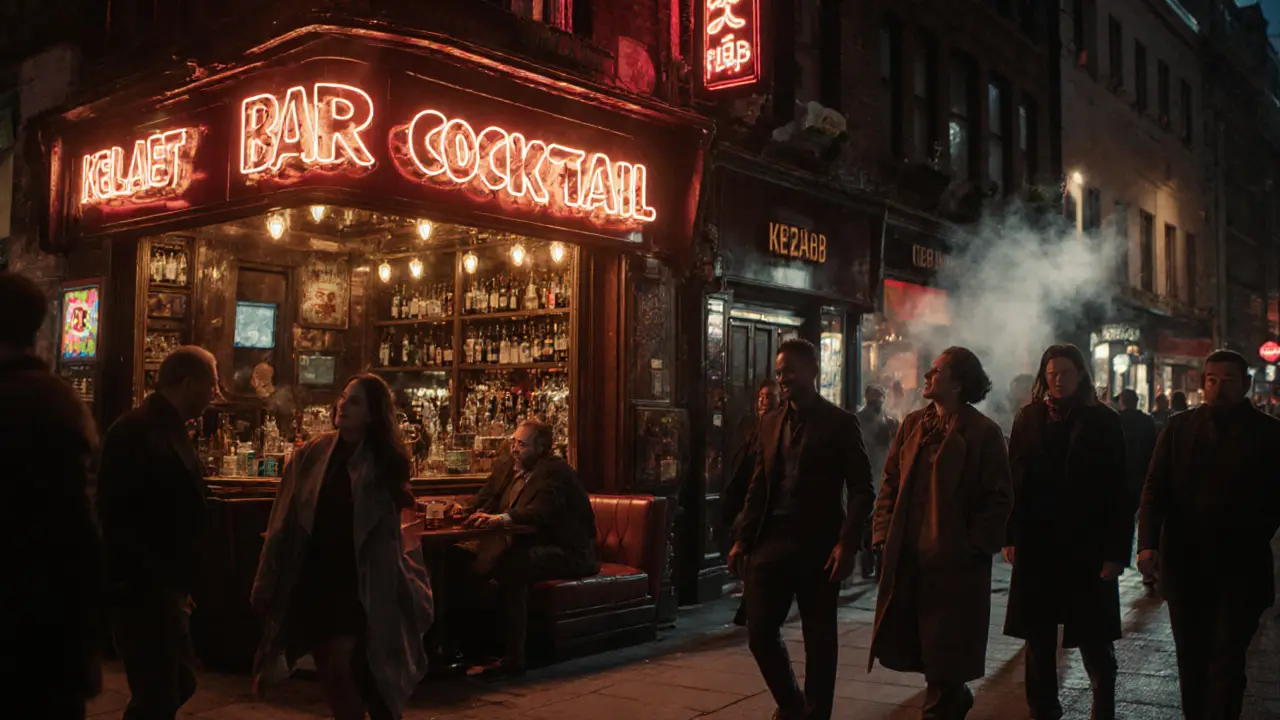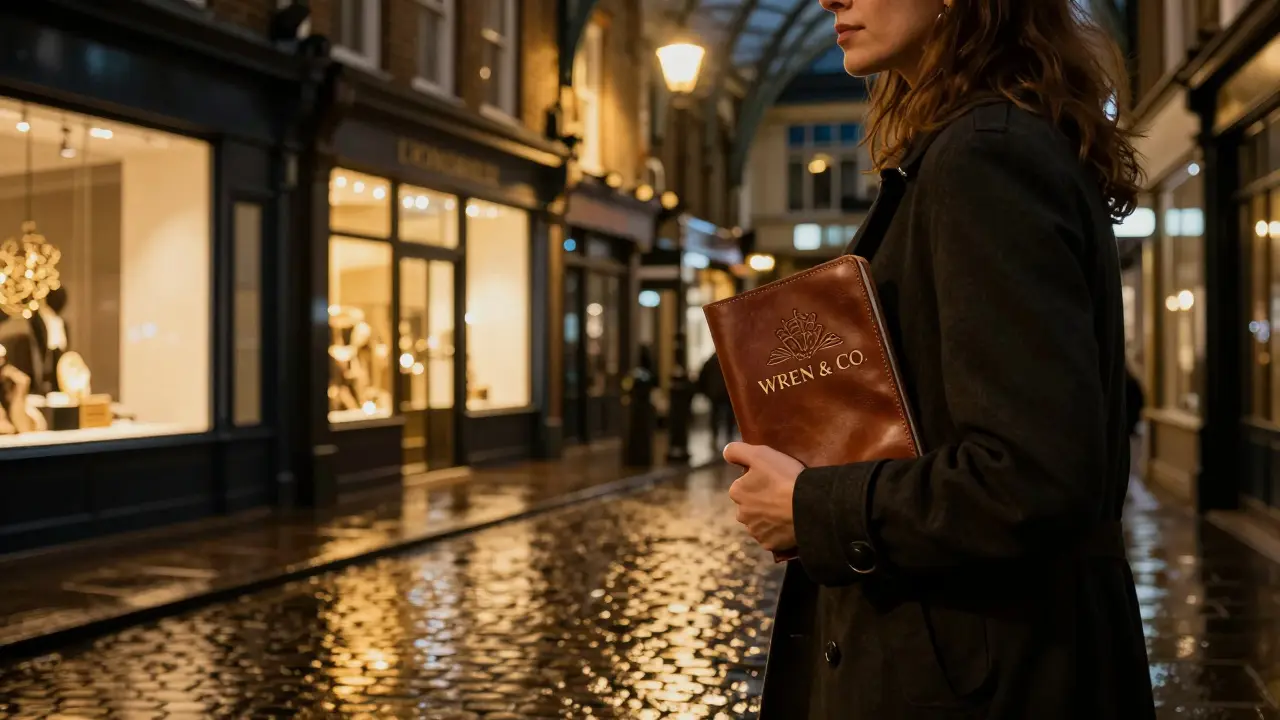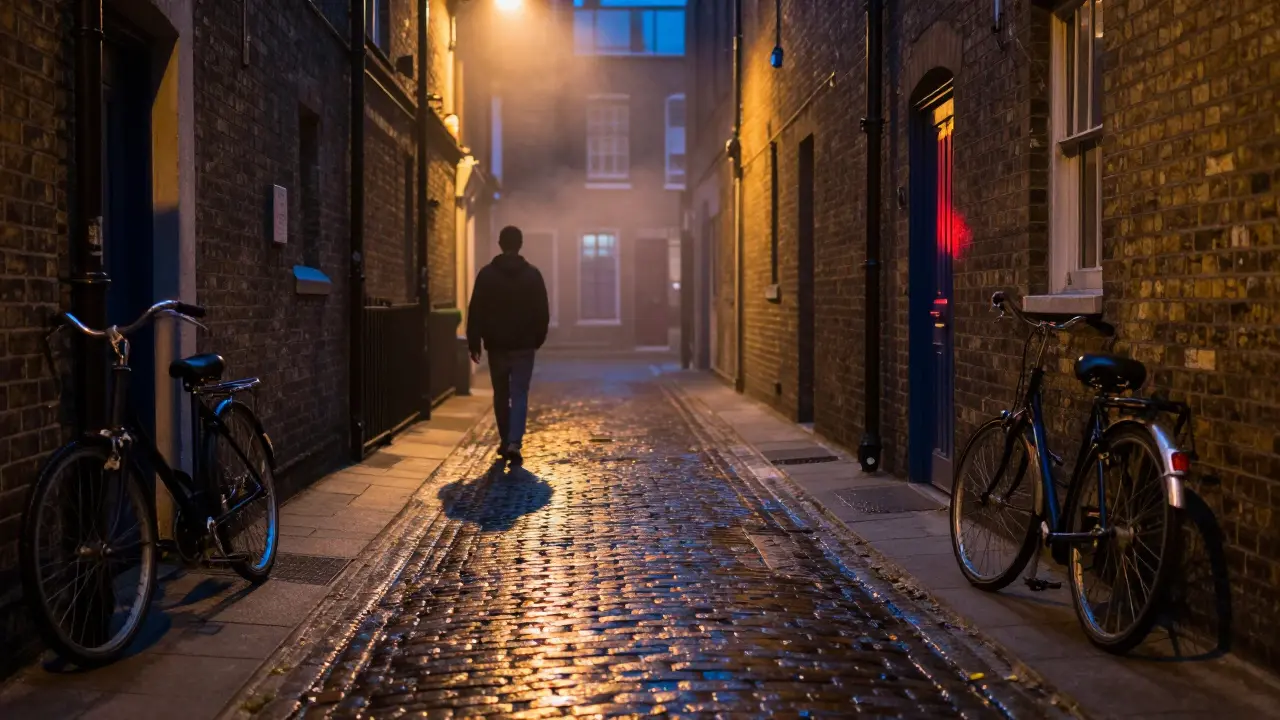The Best Nightlife in London for Culture Lovers
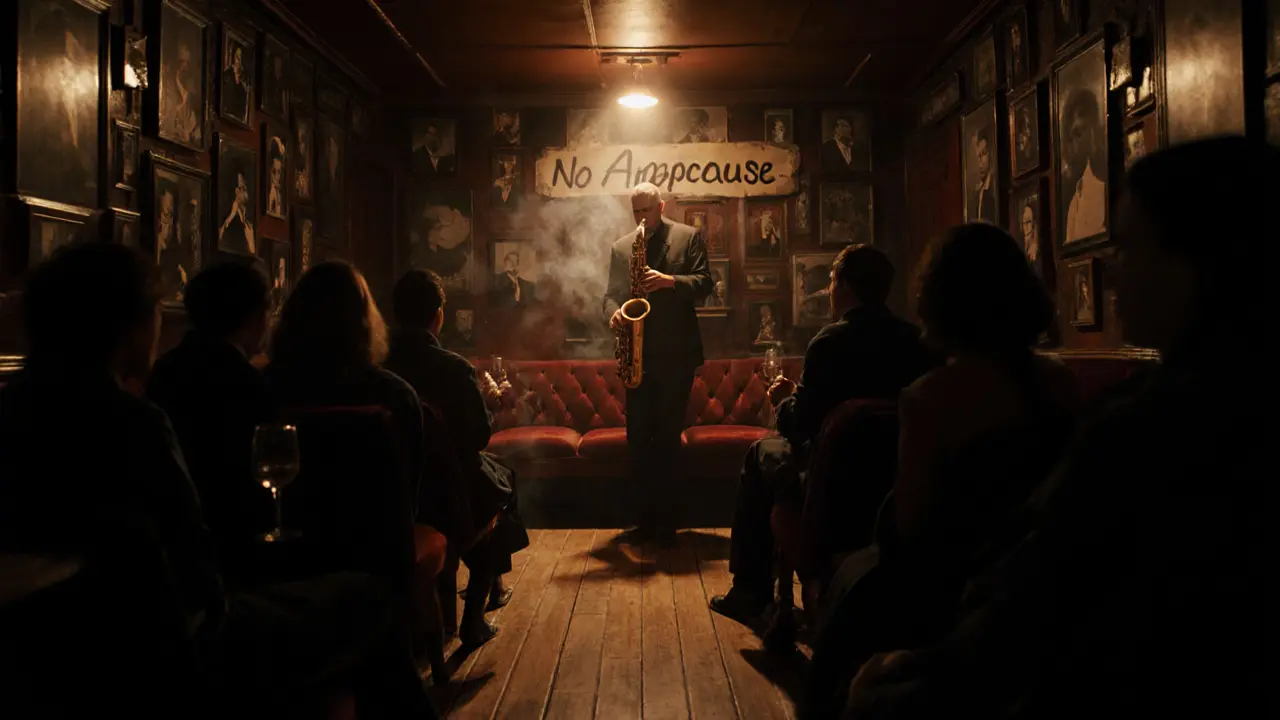
London doesn’t sleep - but not all nightclubs are created equal if you’re after more than just loud music and flashing lights. If you love art, history, jazz, poetry, or the quiet hum of a bookshop bar at midnight, the city’s real nightlife isn’t found in the West End’s bottle-service clubs. It’s tucked into basement jazz lounges, tucked-away poetry slams, and galleries that stay open past ten. This isn’t about partying. It’s about soaking in culture after dark.
Soho’s Hidden Jazz Cellars
Start in Soho, where the air still smells like old wood and cigarette smoke - not perfume and synth beats. The Vortex Jazz Club has been running since 1989, tucked under a nondescript door on Gresse Street. No sign. No menu. Just a tiny stage, a grand piano, and a crowd that listens. Musicians here don’t play for applause; they play for the silence between notes. Regulars include ex-BBC jazz producers, retired musicians, and students from the Royal Academy of Music. Tickets cost £12. You get a glass of wine, a seat on a worn velvet couch, and 90 minutes of something real.
Don’t miss Ronnie Scott’s, either. It’s the most famous, but still worth it. The walls are lined with photos of Coltrane, Miles, and Ella. The sound system was custom-built in the 1970s. You’ll hear a saxophone solo that makes you forget you’re in London - and not New Orleans in 1958. Book ahead. Tables sell out weeks in advance.
Theatre District After Hours
After the final curtain falls at the National Theatre or the Old Vic, the real show begins. Head to The George Inn, a 17th-century pub just off the South Bank. It’s the last remaining galleried coaching inn in London. The wooden beams creak. The fire burns low. Locals debate Shakespearean soliloquies over pints of bitter. On Tuesdays, there’s a free Shakespearean Monologue Night - anyone can step up and recite. No prizes. No judges. Just voices in the dark, echoing off centuries-old stone.
For something quieter, try Bar 52 at the Royal Opera House. It’s not a pub. It’s a wine bar where former opera singers sip Pinot Noir and talk about the acoustics of La Scala. The staff know every aria. Ask for the “Midnight Arias” playlist - a curated selection of lesser-known arias played softly after 11 PM. No singing. Just listening.
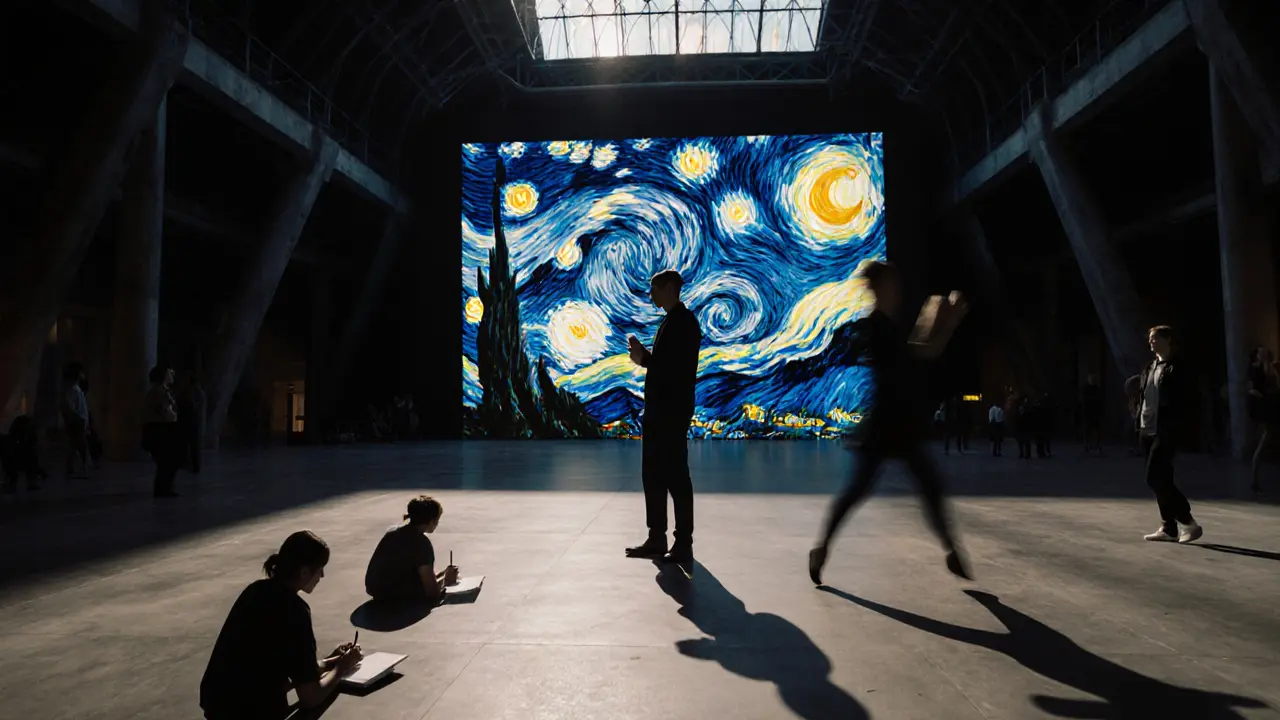
Art Galleries That Never Close
Most galleries shut at 5 PM. Not these.
Tate Modern’s Late happens every Friday until 10 PM. But the real magic starts after 8. The Turbine Hall becomes a space for live experimental soundscapes, spoken word, and film projections. In 2024, a poet read original work while a dancer moved in silence beneath a projection of Van Gogh’s Starry Night. No tickets needed. Just show up. Bring a notebook. You’ll leave with lines in your head you didn’t know you needed.
At Whitechapel Gallery, the After Hours series runs every third Thursday. Artists host intimate talks in front of their own work. No microphones. No slides. Just a chair, a light, and someone explaining why they painted a door 37 times. One night, a young artist from Lagos talked about her mother’s funeral veil - and how she turned it into a canvas. People cried. No one left early.
Bookshops That Stay Open Late
London has more bookshops than any other city in Europe. But only a few stay open past midnight.
Barter Books in Alnwick isn’t in London - but Daunt Books on Marylebone High Street is. Every Thursday, they host “Books & Brew” from 8 PM to midnight. You can buy a first edition of Virginia Woolf, then sit by the window with a glass of Welsh ale and read it. No pressure. No Wi-Fi. Just paper, ink, and quiet.
Even better is Libreria in Borough Market. It’s a Spanish-language bookstore with a tiny bar in the back. On Fridays, they host “Noche de Poetas” - poets from Latin America, Spain, and the UK read in Spanish, English, and sometimes Catalan. The owner, Rosa, pours sherry and doesn’t charge for the first round. She says, “Words are the only thing worth paying for after dark.”
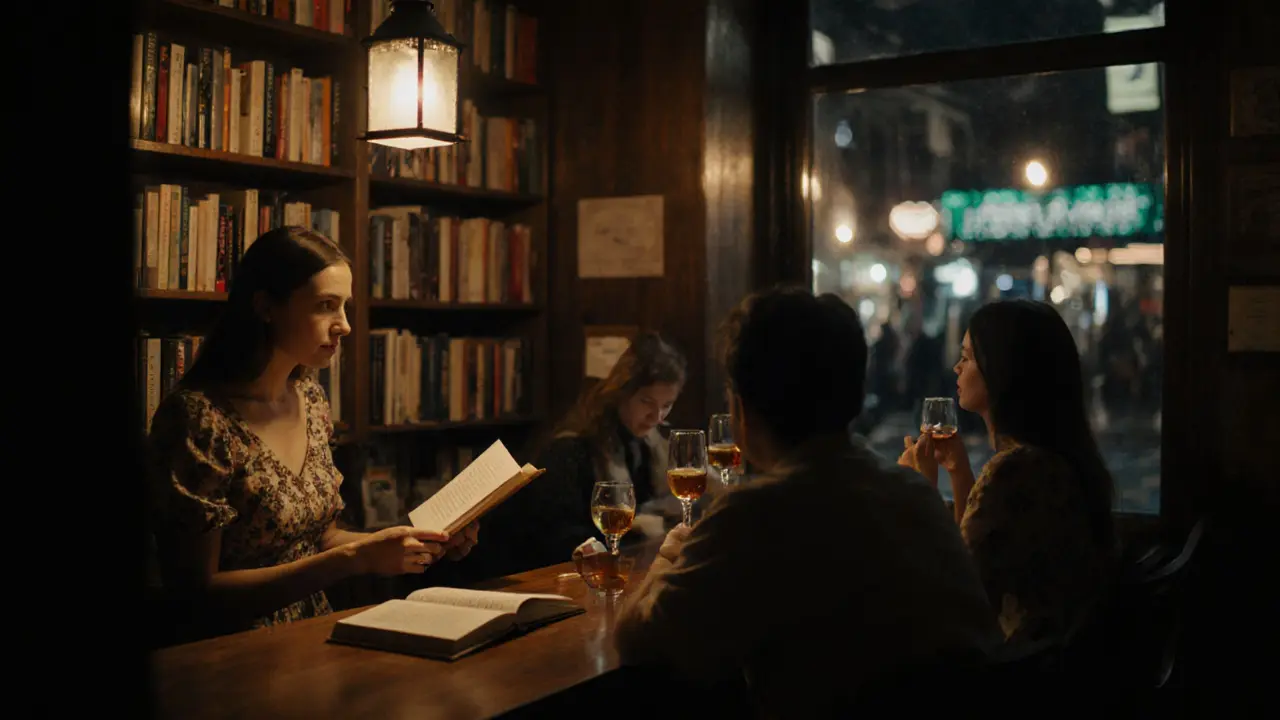
Underground Poetry and Performance
Forget open mics at coffee shops. The real poetry scene lives in basements and abandoned churches.
The Poetry Society runs “The Basement” at the Poetry Café in Covent Garden. It’s not a stage. It’s a room with mismatched chairs and a single lamp. Anyone can read. You’ll hear a 72-year-old retiree recite war letters. A 19-year-old refugee read a poem about crossing the Mediterranean. A man in a suit read a love letter he never sent. No applause. Just silence - and sometimes, a single tear.
At St. John’s Church in Hackney, the “Midnight Sermons” series runs every month. Not religious. Not political. Just stories - true ones - told by strangers. One man told how he found his wife’s wedding ring in a secondhand bookshop. Another told how she died three days later. No music. No lights. Just one voice in the dark.
Where to Go When Everything Else Closes
London’s night never ends - but it changes shape. Around 2 AM, the jazz clubs close. The galleries lock up. The bookshops turn off the lights.
That’s when you head to 269 in Peckham. It’s a former community center turned all-night cultural hub. Open until 6 AM. You’ll find a film screening of silent German expressionism. A group of artists painting on cardboard walls. Someone playing a theremin. A woman reading Kafka in German. A man making tea for everyone.
No one asks your name. No one checks your ID. You’re just there. Like everyone else. And for a few hours, London feels like it belongs to the quiet ones.
Is London nightlife safe for solo visitors at night?
Yes, especially in cultural areas like Soho, South Bank, and Covent Garden. These neighborhoods are well-lit, heavily patrolled, and filled with people who are there for the art, not the party. Avoid isolated side streets after 2 AM, but stick to the main cultural hubs - they’re as safe as any city center at night. Trust your gut. If a place feels off, walk away. The best spots are always welcoming.
Do I need to book tickets for cultural nightlife spots?
For places like Ronnie Scott’s or Tate Modern’s Late, yes - book ahead. But many of the best spots - The Poetry Café, Libreria’s Noche de Poetas, Bar 52’s Midnight Arias - are first-come, first-served. You don’t need a reservation. Just show up. Some places have a small cover charge (usually £5-£15), but it’s often just to cover drinks or a small donation. The experience is worth more than the price.
What’s the best night to experience cultural nightlife in London?
Fridays are the busiest, but Thursdays are quieter and often more intimate. The Poetry Society’s Basement runs every Thursday. Libreria’s poetry nights are on Fridays, but the crowd is smaller earlier in the week. Tate Modern’s Late is Friday only. For the most authentic, unpolished experience, go midweek. Fewer tourists. More locals. More room to breathe.
Can I find live music that’s not rock or electronic?
Absolutely. Jazz is everywhere - Vortex, Ronnie Scott’s, and even the Jazz Café in Camden. You’ll also find classical recitals at St. Martin-in-the-Fields, folk nights at the Union Chapel, and experimental sound art at Cafe OTO in Dalston. London’s music scene is diverse. You just have to know where to look. Skip the clubs. Head to the churches, bookshops, and galleries. That’s where the music lives.
Are there any free cultural nightlife events?
Yes. Tate Modern’s Late is free. The Poetry Café’s Basement is £5 at the door, but often includes a free drink. Bar 52’s Midnight Arias is free if you buy a glass of wine. St. John’s Church’s Midnight Sermons are donation-based. Daunt Books’ Books & Brew has no cover charge. You don’t need to spend money to experience London’s soul after dark - just show up, listen, and stay quiet.
If you want to feel the pulse of London beyond the tourist spots, skip the neon and the bottle service. Go where the silence is loud. Where the art speaks. Where the people don’t care if you’re famous - they care if you’re present. That’s where the real nightlife lives.
